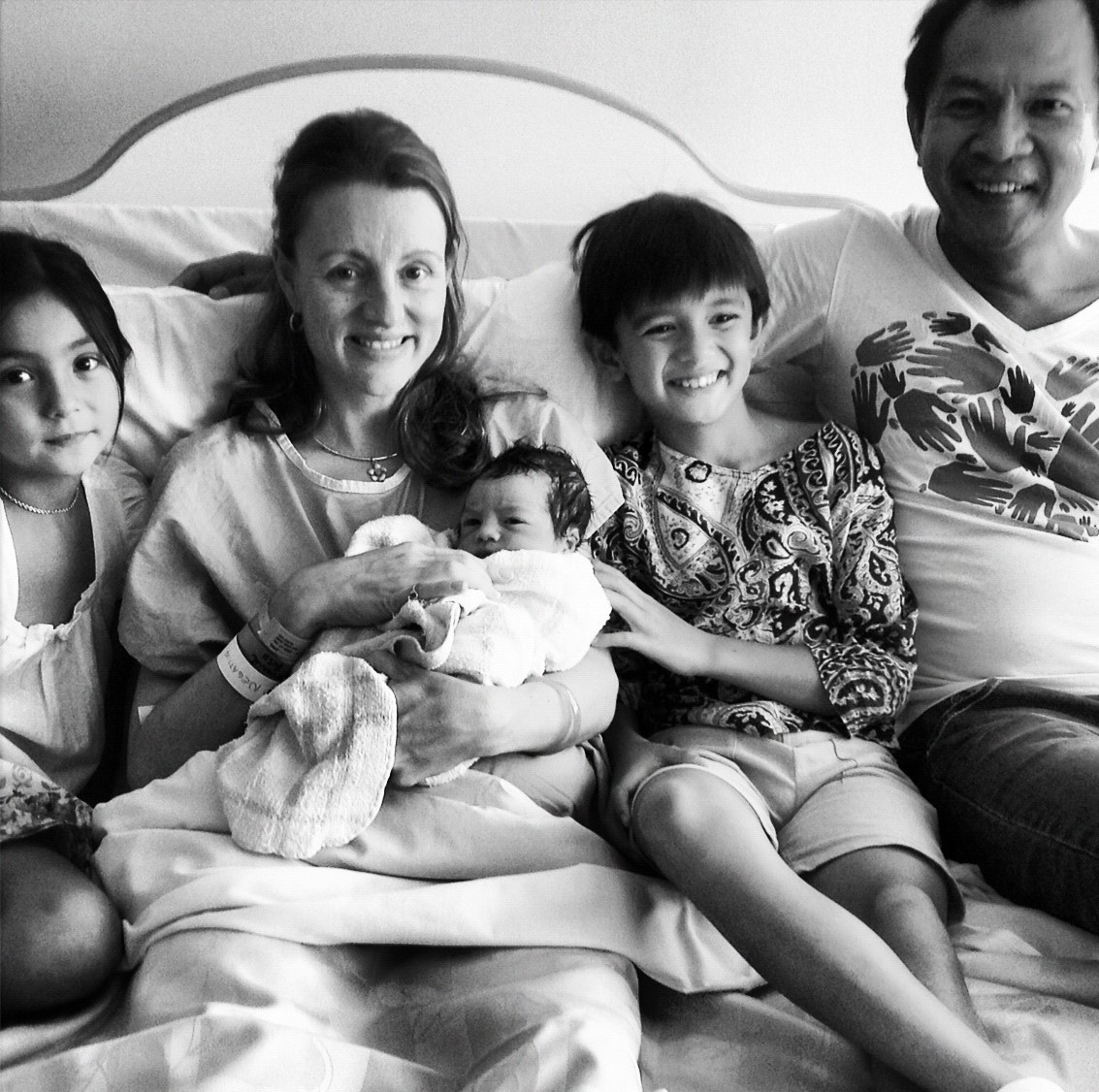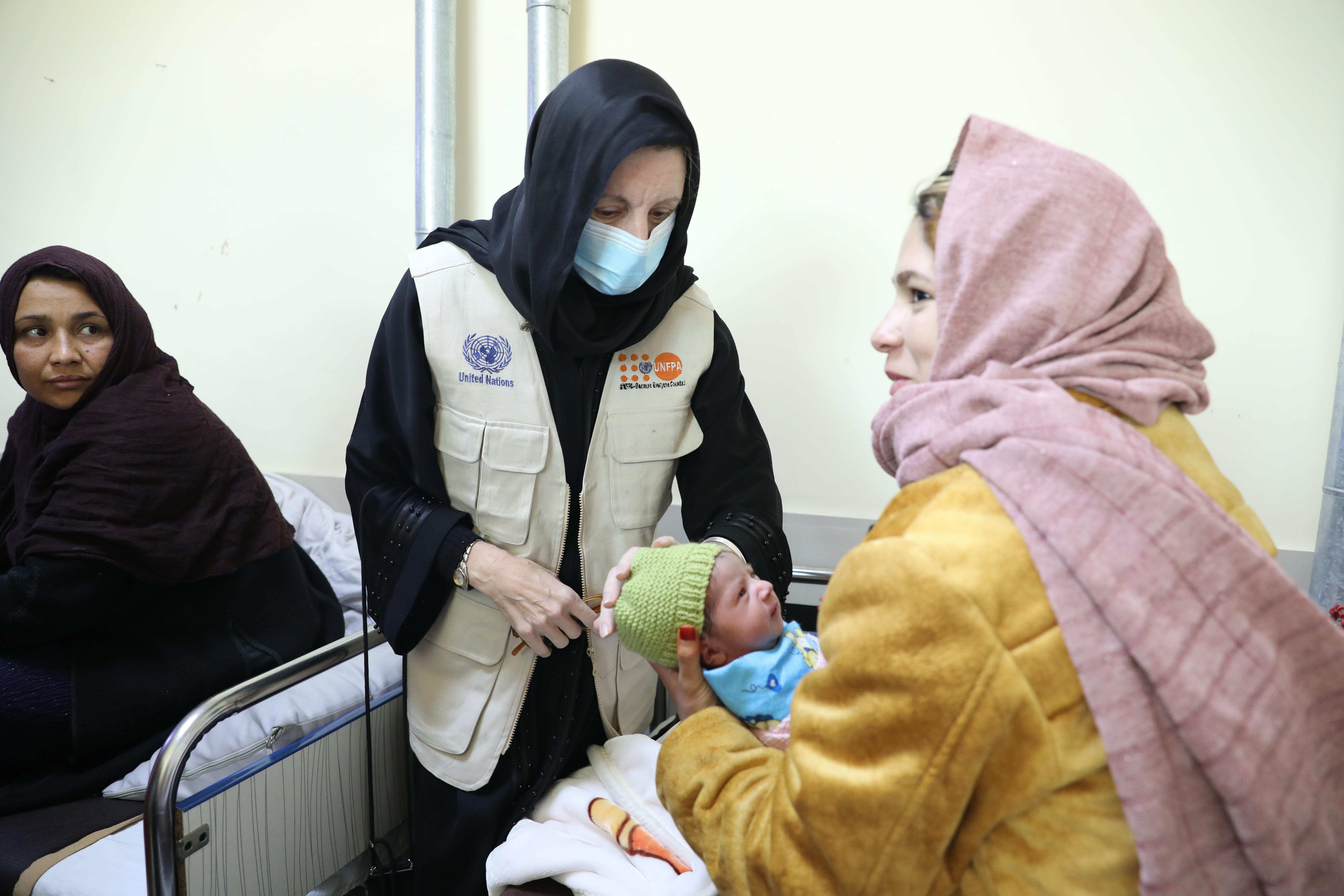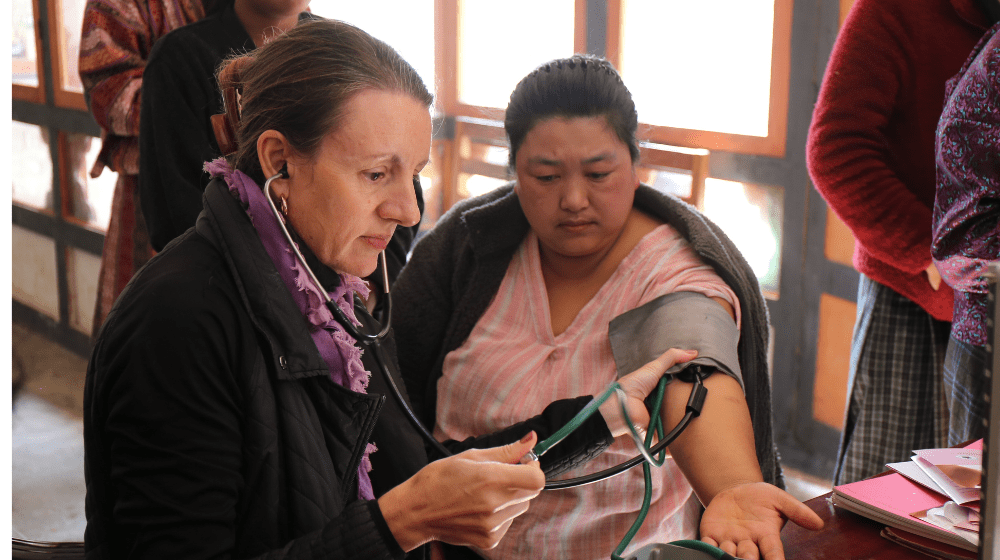Reflections by Catherine Breen Kamkong, Technical Adviser for Sexual and Reproductive Health and Rights and Maternal Health at the UNFPA Asia and the Pacific Regional Office on the occasion of Mother’s Day.
Twenty-seven years ago, I was a young registered nurse volunteering in Calcutta, India. On my way to work, I was faced with the stark reality of a woman on the platform of a train station who had miscarried her baby on that very platform floor. The baby was lifeless and the mother was bleeding heavily. Noone was taking notice of her. No one was helping her. She was completely alone. She needed urgent help. She needed a midwife.
That memory has never left me.
Each year, on mother’s day, I cannot help but recall that moment as I reflect on my own experience of bringing life into this world. My reality was different. A midwife was by my side. I remember the feeling of safety and calm that they gave to me. I trusted their competence, and was grateful for their kindness, their patience and their respect. I remain forever grateful to them for caring for me, looking after the health of my babies, guiding my husband, and that overwhelming beautiful moment when they handed me my baby.

I have realized that the place we are born determines so much of a person's fate. Yet, as a woman, it should be a birthright to survive pregnancy and birth – a right to have access to quality reproductive healthcare no matter who we are, where we live, how much we own.
As a woman, as a mother – what can feel more important than having a skilled midwife at your side during one of the most transformational, life-affirming and life-changing moments?
Every woman deserves a skilled midwife at her side – someone she can talk to, trust and who can take care of her in some of the most personal, critical and vulnerable moments of her life. It feels so simple and so logical, but the reality is bleak for many women across Asia and the Pacific. Women are delivering their babies at home with no midwife at her side, no lifesaving medication in hand and no equipment to manage if complications arise.
When I was working at a clinic in the refugee camps on the Thai-Burma border, we received a woman in the middle of the night who had been carried on a makeshift stretcher made from a longi and a bamboo pole. We had no proper light to examine her. She was in a very critical condition. Despite all efforts, the life of this mother was lost due to hemorrhage and shock. A medic in the camp told me it was “the lottery of life”.
These are the images that are in my mind, constantly, of the women who cannot share their story as their lives have been lost through the sheer act of giving birth. It is their voices in my head that propel me.
Today, in my role as Sexual and Reproductive Health and Rights and Maternal Health Advisor at UNFPA Asia-Pacific, I continue to advocate the importance of skilled midwives in saving lives – yet, there are too many women and newborns in this region dying in pregnancy and birth.
Every hour, eight pregnant or laboring women lose their lives in Asia-Pacific – and then there are those who survive, but lose their baby or face a grave disability like obstetric fistula, which remains with them as a shocking reminder of the fact they were neglected in their hour of greatest need – in childbirth.
On a recent trip to Afghanistan, I saw girls as young as 14 years of age, pregnant, and giving birth – the risks to their lives are great, and the risks are only growing with the ban on girls going to school.
In Bhutan, I met with women living in the most remote parts of the country who were unable to access quality healthcare services because roads become inaccessible during certain times of year. These women are unable to test for cervical cancer, breast cancer or other reproductive health needs that can save their lives.
As I write this, I am in Mongolia, on my way to Khovd province located in the Western Region of the country with the highest maternal and perinatal mortality. During my visit, we will be looking at the maternal and neonatal healthcare services including for ethnic minorities in these remote areas.
In the Asia Pacific region, we have health systems which are fragile – where we have trained midwives, we find we have no life saving maternal drugs, no essential equipment nor supplies. In other places we have drugs, but no refrigeration for the certain drugs that become useless if not refrigerated. In other situations, we have the refrigerator, but no electricity. Midwives are operating in facilities without light or water. A midwife only has two hands – yet she has two lives to save. An unsupported, ill-equipped midwife is not a solution.
An educated, skilled midwife who is well remunerated, respected, supported and enabled in a health facility with a team of health workers, the basics of water, electricity and life saving drugs and equipment at her hands is the solution.
Some years ago we did a training for midwives on management of obstetric and newborn emergencies in Papua New Guinea, and within a month of our training, we received a letter explaining how the life of a woman who was septic following an incomplete miscarriage had been saved using the skills they had learned.
In Bhutan, the solution to inaccessible roads was to take a team of midwives, an oncogynaecologist and pathologist to the women themselves through an outreach camp. UNFPA supported the Ministry of Health to conduct mobile outreach camps and I witnessed the compassion and deep commitment of the midwives and nurses that helped women to get tested.

In Afghanistan, I entered a Midwifery Led Maternity Care Centre run by the Afghan Midwives Association at Jinnah hospital, Kabul, and I witnessed some of the most respectful and beautiful care of pregnant women and girls that I have seen anywhere in the world. It was a wholesome safe space for women. Midwives calmly and skillfully looked after women and girls in labor – an oasis in a situation of tragedy for women and girls outside those walls.

While many problems in our world do not seem to have solutions, saving the lives of mothers and newborns is not one of them. We just need to have the collective will, coordinated action and investment in the things we know that work.
If I listen to the voices of the women who have lost their lives in pregnancy and birth, I can hear them calling out: “Prioritize our lives, if not for ourselves – for our families - and make sure every woman has an equipped midwife at their side during pregnancy and birth.”
It is only by having adequate and skilled midwives that Mother’s Day can truly be celebrated by every mother across Asia and the Pacific, and the world.


